- Home
- Peter Ackroyd
The Trial of Elizabeth Cree Page 5
The Trial of Elizabeth Cree Read online
Page 5
She seemed to look at me with disapproval but turned back into the room. “Bring in the donkey meat.” I recognized the voice as that of the swaggering lion comique who had sung “All Through a Little Piece of Bacon” to great applause. Then another door was thrown open and we entered a room full of people: there were two large mirrors propped against the walls, as well as some wooden stools and chairs which already had costumes and garments thrown across them in apparent confusion. I held out my hands, and the pies just went. The comedian-caroler who had sung “The Whole Hog or None” took one, the Dancing Quakers grabbed three from me (they could not have been in the highest spirits, having been whistled from the stage) and then the Nerves took two more. There was only one left. I suppose I was meant to eat it myself, but then I noticed Dan Leno sitting on a stool in a corner of the room; he had his head cocked to one side, and gave me such a bright funny look that I walked straight over to him. Even as I spoke I was surprised by my own audacity. “Here’s the last one for you, Mr. Leno.”
“Mr. Leno, is it?” One of the Dancing Quakers had heard me. “She should be in a green room, since she’s such a green one.”
“Now, now.” It was my new “uncle” remonstrating with her. “What’s the harm in doing us all a favor, as the cannibals said to the missionary?” Meanwhile Dan Leno had spoken not a word, but sat munching his pie with his eyes fixed upon me. “Tell me, my dear,” said “Uncle,” coming over to me and patting me on the arm. “What’s your moniker?”
“I don’t understand.”
“Your name, dear.”
“Lizzie, sir.” Then, as I looked around at all of them, I suddenly felt that I must also step into a character. “Lambeth Marsh Lizzie.”
The wicked Dancing Quaker gave another low laugh and curtsied to me. “Are you mellow in the marshes? Are you a little light in the marshes, Lizzie?”
“Now then. Order, ladies and gents.” But my “uncle” need not have remonstrated with them. All at once they seemed to have forgotten about me, and began talking to each other and eating their pies. Then Dan Leno came over.
“Don’t let them dumb yer,” he said, very confidentially. “It’s just their way. Isn’t that right, Tommy?” My “uncle” was still hovering about me, and Dan Leno gave him a stern look before introducing him to me. “Allow me to present Tommy Farr. Agent, author, actor, comic acrobat and manager.” “Uncle” bowed to me. “He’s the one who hands out the spondulicks.”
“The dear girl doesn’t understand, Dan. You see, dear, he means the baksheesh.”
“Sir?”
“The bustle. The bunce. The money.”
“Come to think of it, we owe you a little something.” Dan took a shilling out of his pocket. “As Tommy would say, you did extend to us a helping hand.” When I took the coin, he glimpsed my own hands—so raw, so pitted and so large that, even then, I think he felt sorry for me. “We’re at the Washington tomorrow night,” he said in a very gentle voice, quite unlike his stage scream. “There may be a little job for you there. If you would oblige again.”
I recognized that line from the variety, and I laughed. “Where is the Washington, sir?”
“It’s in Battersea. In your immediate neighboring vicinity. And if it’s all right with you, I’d rather you called me Dan.”
I left them soon after, and I walked through the night. I could not have slept, because I was already in a dream. I drifted down the line of gas lamps, and sang as softly as I could the words I had heard in the Craven Street theater:
Oh mother, dear mother, come home with me now,
The clock in the steeple strikes one.
I could not remember the rest of it, but it was enough for me to imagine myself dancing upon the stage with the beautiful picture of London behind me.
FOURTEEN
SEPTEMBER 9, 1880: My wife sang to me after dinner. It was an old song from the halls and, when she did all the business in her usual droll fashion, it brought back those days so fresh that we both might have wept.
SEPTEMBER 10, 1880: Very cold and foggy for the time of year. Spent the day in the Reading Room, where I made copious notes on Mayhew’s London Labor and the London Poor. What a moralist that man is! I had been reading the newspapers ever since my first escapade, even though I knew that the death of such a chicken would cause no great stir in the world. Then I saw a paragraph in the Morning Herald—“Self-Slaughter of Young Woman”—and I knew at once that the affair had been hushed up. The gay ladies would not want to spoil their trade in that quarter, and my little business might have scared away the swells. Yet I must admit that I felt somewhat humiliated; all that work gone for nothing and, in the face of this neglect, I made a pledge to myself that next time I would leave a mark that everyone would notice. Really, I was not to be trifled with in these matters.
I left the Museum that evening and waited in Great Russell Street by the cab stand, although the fog was still so thick that I despaired of ever finding a driver. But then I saw a pair of bull’s-eye lamps approaching from a distance, and I waved my bag; I shouted out “Limehouse!” but my words could find no passage through the fog. Then, as the cab drew nearer, someone tapped me on the shoulder. I turned quickly, in case it were some thief set to rob me, but it was the old bearded gentleman who sometimes sits near me in the Reading Room.
“We are going the same way,” he said. “And there is only one cab. May we ride together?” He had a foreign accent, and at first I took him for a Hebrew; I have a great reverence for their learning, and so I assented at once. It seemed delightful to me to spend a little time with such a scholar before pursuing my own researches. The cab stopped and we clambered inside; it smelled no more wholesome than a dogcart but, on a night such as this, I would willingly have traveled in a prison wagon.
“This fog,” I said to my companion, “is as thick as I have known it. It might have come straight from hell.”
“From the furnaces and manufactories, sir. There was nothing like it even twenty years ago. Now all the coal that we consume literally surrounds us.”
He had a sharp voice, which I thought interesting in a man of his age. “You are from Germany, sir?”
“I was born in Prussia.” He looked out at the fog as we slowly made our way down Theobald’s Road. “But I have lived in this city for over thirty years.” He had a noble forehead and, when we passed a gas lamp, I could see how fiercely his eyes gleamed in the light. It was at this precise instant that I surprised myself with a wonderfully new idea. Why should I lavish all my genius upon those who were unworthy of it, when to exterminate a fine scholar would be so easily within my power? Think of the glory in destroying a brilliant man, and then, in the exultation after the act, what if I were to take off the topmost part of his skull and examine a brain still warm with its exertions?
“I have seen you in the Reading Room,” I said to him at last.
“Yes. There is always more to learn. More books to devour.” He lapsed into silence again, and I understood that he was not accustomed to general conversation. But, still, he seemed disposed to talk to a stranger on such a night as this. “I used to come to the Museum before the Reading Room was first built. We had all grown so used to the old library that we thought we would never accustom ourselves to the new establishment. But we survived.”
“You came regularly?”
“I came every day. I lived in Dean Street in those days, and I walked there each morning. There was much illness in my house, and the Museum became my retreat.”
“I am sorry to hear of it.”
“Well, well, these things are determined for us.”
We had come up into the City Road, before turning south towards the river, and in the light from the front of the Salmon Vaudeville I took the opportunity of inspecting his head in a purely scientific spirit. If I could break it open with one blow, then perhaps the accumulated knowledge of his years would fly from him in some tangible shape. “You are a fatalist, then?” I asked.
“No
. On the contrary, I wait impatiently for change.”
I looked out into the fog, reflecting to myself that it might come sooner than he thought. “A fine night for a murder,” I said.
“If I may say so, sir, murder is a bourgeois preoccupation.”
“Oh? Is it so?”
“We dwell on the suffering of one, and forget about the sufferings of many. When we ascribe guilt to one single agent, then we can deny the responsibility of all.”
“I cannot follow you there.”
“What is one murder here or there compared with the historical process? And yet, when we pick up a newspaper, what do we find but murder alone?”
“You throw the subject in a new light, certainly.”
“It is the light of world history. Weltgeschichte.”
We were close now to our journey’s end, and I could see the tower of St. Anne’s, Limehouse, with the fog swirling about it. What a good fortune for me that this Prussian philosopher lived in the theater of my operations; to dispatch him here, among the whores, would make a very neat piece of tomfoolery. “Let me take you to your lodgings,” I said. “It is too foul a night to walk far.”
“Scofield Street is my destination. It is close to the Highway here.”
“Yes. I know it very well.” I knew it to be in the Hebrew quarter, too, and I was more delighted still. To murder a Jew—it had the wonderful flavor of some blood-and-thunder play although, as I have had cause to observe in the past, the drama upon the stage is sometimes no more than an intensification of the rituals within our own hearts. And speaking of hearts, I yearned to see that of the old man with the glittering eyes. I could hold it and cherish it. And then, perhaps, make it a part of myself? What are the lines of that unjustly neglected poet, Robert Browning?
Had I been two, another and myself,
Our work would have o’erlooked the world.
The cabdriver banged on the trap and asked for directions; he had taken us only reluctantly to this neighborhood, well known for its dens and its flash houses, and now wanted to leave us here as quickly as he could. “Scofield Street!” I shouted up to him. “Turn left at the next corner, and it is on our right hand.” I knew Limehouse so well that it had become my own Field of Forty Footsteps. That was the notorious field behind Montague House where so much blood had been shed that no grass would ever grow, and, as I explained to my German scholar while we came up to his street, by curious coincidence that patch of fatal ground lies directly beneath the Reading Room of the British Museum. He did not find this of any great concern, and made ready to leave the cab. Well, my fine friend, I thought as I watched him gathering his coat about himself and wrapping his scarf around his throat, you will soon know for yourself how books and blood can be subtly joined together. We stopped on the dark side of the street, and I pressed half a crown into the driver’s hand before escorting my companion to the door of Number 7. I wished to be able to recognize it again, at the appointed time. We saluted each other, and then I turned on my heel towards the river. The tide was out and there was such a stench that the fog itself seemed like some miasma of filth and effluence. But the gay ladies were still at their game, and I sought for one who stood apart from the rest. I was crossing Limehouse Reach in the direction of the seamen’s mission, when I saw a shape ahead of me—whether of woman, or man, or something else, I could not tell; but I pressed my bag against my chest, and hurried after. It was a woman shivering with the damp and the cold, who looked at me gratefully enough.
“What is your name, my little bird?”
“I’m Jane.”
“Well, Jane, where do you go from here?”
“I have a room in that house, sir, with the yellow door.”
“All things look yellow in this fog, Jane. You will have to guide me there.” I took her by the arm, but then turned her about to face the river. “Shall we take a walk before we retire? I wonder if we can see the Surrey shore.” Of course we could see nothing whatever, and by the time we came to some old steps there was a silence so profound that it seemed to be some material element of the fog. “How do you take it, Jane?”
“I take it any way you care to give it, sir.”
“Will you say ‘when’?”
“Just as you like.”
“Let’s go down the steps a little way. My home is down below, you see.” She seemed reluctant to follow me, but I coaxed her. “I have something in my bag which might please you. Have you heard of the new protective sheath? Look here.” I opened the bag and then, with a quick movement, took my knife and cut her across the throat from left to right. It was a powerful start, although I say so myself, and she leaned back against the wall with an astonished look upon her face; she sighed and seemed eager for more, so I obliged her with a few deep cuts. Then, lost in the fog, I created such a spectacle that no eye seeing it could fail to be moved. The head came off first, and the intestinal tract made a very pretty decoration beside the womb. Along this part of the river, two centuries ago, malefactors were left in chains to rot with the movement of the tides—how rare an opportunity for a London historian such as myself to revive the old pastimes. What a work is man, how subtle in faculties and how infinite in entrails! Her head lay upon the upper step, just as if it were the prompter’s head seen from the pit of the theater, and I must admit that I applauded my own work. But then there came a noise from the wings, and I walked quickly by the riverside until I came out by Ludgate.
FIFTEEN
John Cree was wrong in assuming that the German scholar lived in Scofield Street. On that foggy night in early September, Karl Marx was simply calling upon a friend. He visited Solomon Weil once a week for an evening of philosophical discussion. They had met in the Reading Room of the British Museum eighteen months before, when they had found themselves sitting side by side: Marx had noticed that his neighbor was studying Freher’s Serial Elucidation of the Cabbala, and all at once remembered reading it himself when he was a student at the University of Bonn. They had started speaking in German together, perhaps because they recognized some familial resemblance (Solomon Weil had been born in Hamburg, coincidentally in the same month and year as Marx himself), and soon enough they discovered a similar interest in theoretical inquiry and subtle disputes of learning. It is true that in his published writings, and in particular in the earliest of them, Karl Marx had condemned what he described as a degraded Judaism. In one of his first essays, “On the Jewish Question,” he had concluded “ist der Jude unmöglich geworden” or “the Jew becomes impossible.” But Marx himself sprang from a long line of rabbis and was deeply imbued with the vocabulary and the preoccupations of Judaism. Now, at the end of his life, the sudden glimpse of a commentary upon the Cabbala was enough to launch him into a torrent of German conversation with Solomon Weil, and an almost inexplicable affection for this scholar who was studying one of the books of his youth. He had spent most of his life in persistent invective against all forms of religious belief but, as he sat beneath the great dome of the Reading Room, he was strangely moved and excited. They left the Museum together that evening, and agreed to meet the following day. It must be said that Solomon Weil himself was a little perplexed. He had heard of Marx through other German émigrés, and was surprised to find this atheist and revolutionary so charming and erudite a companion. He had, perhaps, been even too polite; but Solomon Weil assumed, correctly, that Marx was trying to atone for his vindictive assaults upon his own old faith.
During their second conversation, held in a small chophouse off Coptic Street, Solomon Weil mentioned to Marx that he had acquired a large library of cabbalistic and esoteric learning: he had some four hundred volumes in his lodgings, and at once Marx asked if he might examine them. That was the origin of their regular weekly suppers in Limehouse, where the two men would exchange theories and speculations as if they were young scholars again. Weil’s library was remarkable—many of the books in his collection had once belonged to the Chevalier d’Éon, the famous French transsexual, who had lodg
ed in London in the latter half of the eighteenth century. The Chevalier had been particularly interested in cabbalistic lore, largely because of its emphasis upon an original divine androgyny from which the two sexes sprang. D’Éon bequeathed his collection to an artist and Freemason, William Cosway, who in turn had left it to a mezzotint engraver with whom he had collaborated in certain occult experiments. This engraver then converted to Judaism, and in gratitude for his newly awakened faith left his entire library to Solomon Weil. So the old books were now shelved in his rooms at 7 Scofield Street, together with some of Weil’s own acquisitions such as A Second Warning to the World by the Spirit of Prophecy and Signs of Times, or A Voice to Babylon, the Great City of the World and to the Jews in Particular. Weil had also purchased a collection of material devoted to the life and writings of Richard Brothers, the visionary and British Israelite who believed that the English nation represented the lost tribe of Israel. But there was one less predictable element in his library: he also had a passion for the popular theater of London, and had acquired a collection of sheet music from a printer’s in Endell Street which specialized in the newest songs from the halls.

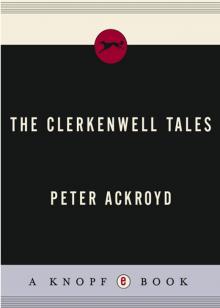 The Clerkenwell Tales
The Clerkenwell Tales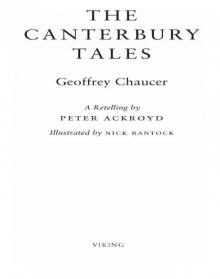 The Canterbury Tales
The Canterbury Tales J. M. W. Turner
J. M. W. Turner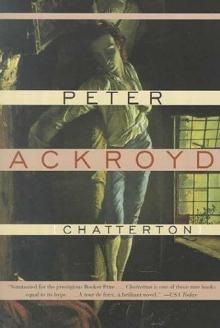 Chatterton
Chatterton The Canterbury Tales – A Retelling
The Canterbury Tales – A Retelling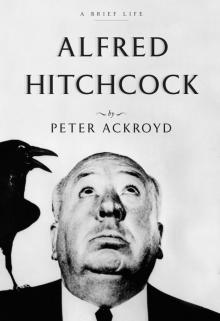 Alfred Hitchcock
Alfred Hitchcock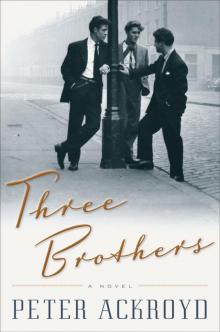 Three Brothers
Three Brothers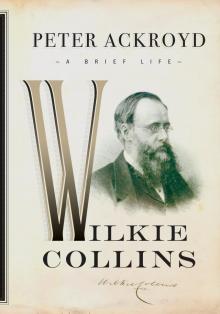 Wilkie Collins
Wilkie Collins Venice
Venice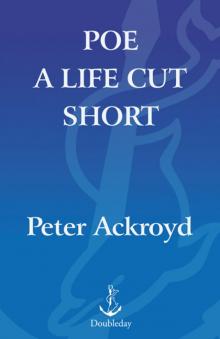 Poe
Poe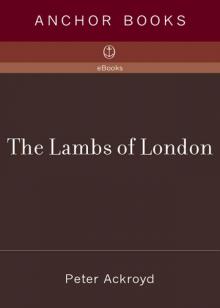 The Lambs of London
The Lambs of London London
London Queer City
Queer City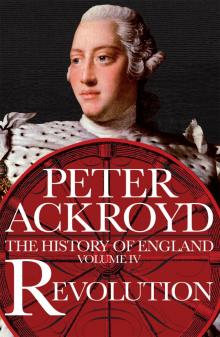 Revolution, a History of England, Volume 4
Revolution, a History of England, Volume 4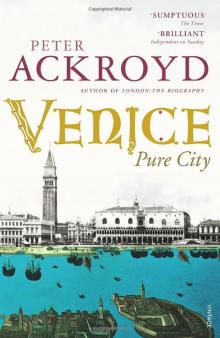 Venice: Pure City
Venice: Pure City Foundation
Foundation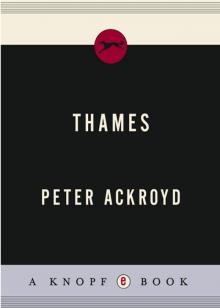 Thames
Thames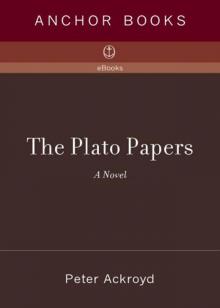 The Plato Papers
The Plato Papers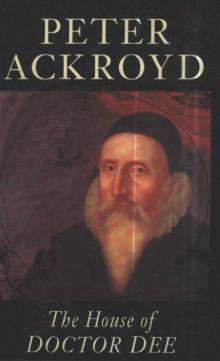 The house of Doctor Dee
The house of Doctor Dee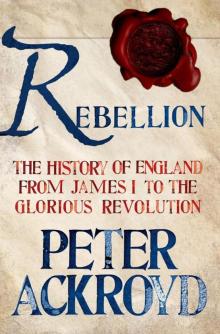 Rebellion: The History of England from James I to the Glorious Revolution
Rebellion: The History of England from James I to the Glorious Revolution Albion: The Origins of the English Imagination
Albion: The Origins of the English Imagination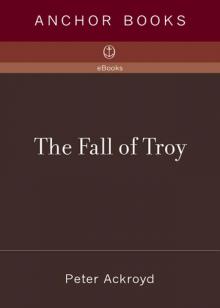 The Fall of Troy
The Fall of Troy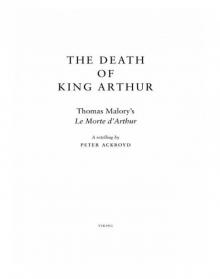 The Death of King Arthur
The Death of King Arthur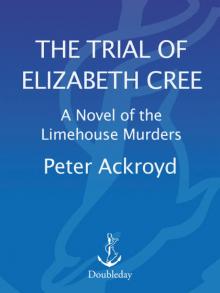 The Trial of Elizabeth Cree
The Trial of Elizabeth Cree London: The Biography
London: The Biography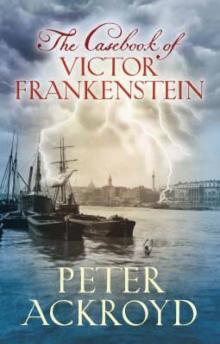 The Casebook of Victor Frankenstein
The Casebook of Victor Frankenstein Hawksmoor
Hawksmoor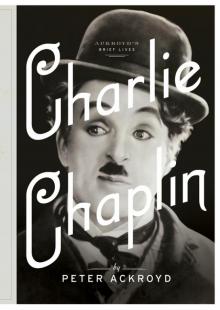 Charlie Chaplin
Charlie Chaplin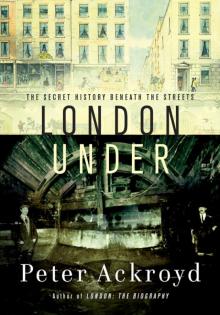 London Under
London Under